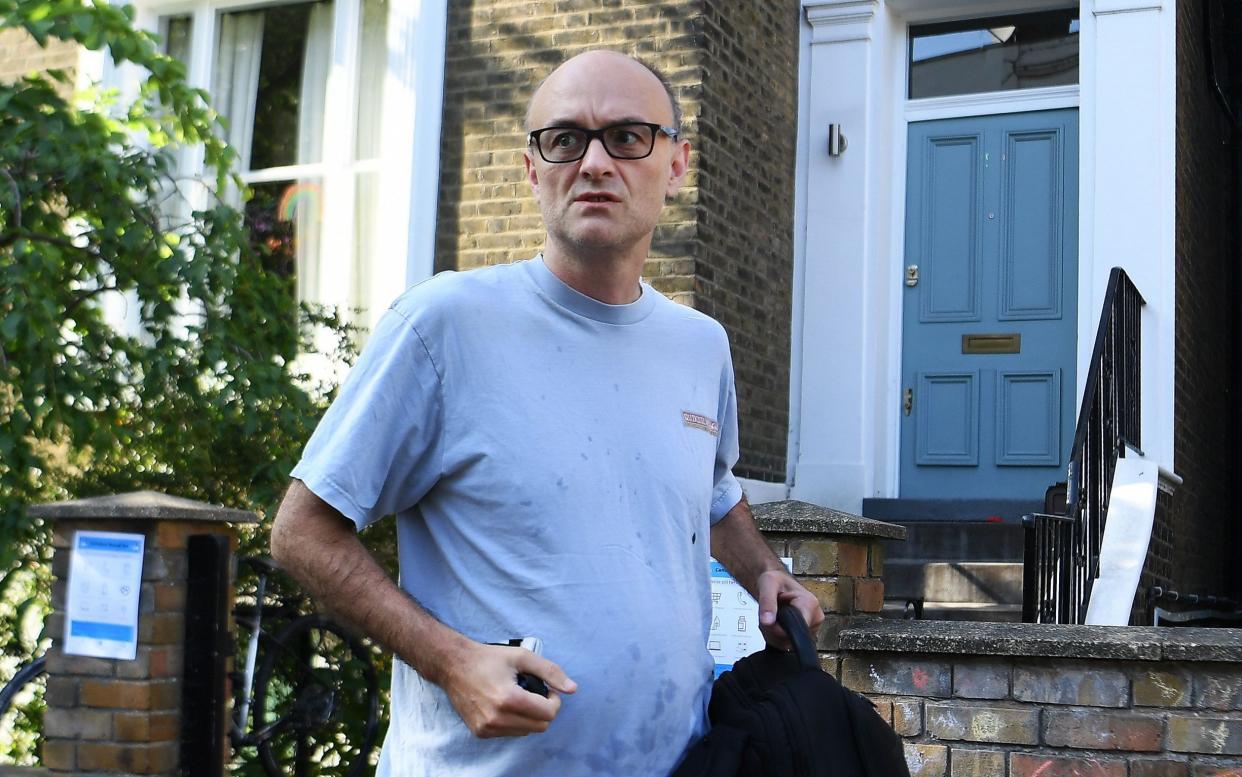Look from Brexit to Covid, and you’ll find Britain is governed by WhatsApp

Has the most powerful force in British politics over the past decade been WhatsApp? It gave us the revelations of the Covid Inquiry and The Telegraph’s Lockdown Files. Speak to journalists, and you’re likely to hear that plotting on WhatsApp brought down the last three Prime Ministers. Sky’s Sam Coates even claims that one MP’s WhatsApp chat was “the group Britain was governed from” following the Brexit referendum, acting like a shadowy alternative to the Whips’ Office.
That was the argument proposed last week, in a WhatsApp doc as memorable as Bugs Bunny’s. Helen Lewis Has Left the Chat (Radio 4), a series about messaging apps, began with an aimless, gossipy pilot that couldn’t settle on a tone, but it found its feet in its gripping second episode, a critique of “the WhatsAppification of politics”.
Lewis interviewed Dominic Cummings, who remains as unpleasant as he is perversely fascinating. He painted a picture of a “dysfunctional” government – where the head of the NHS was, in March 2020, still relying on fax – which leapt on WhatsApp as a way to speed up communications. Cummings was vilified for the foul language he used in his WhatsApps: in a recording from last year’s Covid Inquiry, we heard a gasp when one of his messages was read out in the room, calling a female civil servant a “c--t”.
It was, he said, “Interesting to watch how easy it was to divert to my bad language about particular people, rather than the complete insanity that I was actually referring to.” We were, perhaps, too preoccupied with the issue of whether it was ever appropriate to use a phrase like “useless f--k pigs”, without pausing to ask whether some ministers really were useless f--k pigs.
Unrepentant, Cummings argued that there needed to be a place for private, heated conversations. “This is not me saying this in a meeting in Number 10,” he said. “This is the equivalent of me standing in a corridor with the PM.” But WhatsApp blurs those distinctions.
I wonder if anything’s really changed in the past 50 years. I’d have liked the programme to draw a parallel with the public outcry around the profanity in Nixon’s White House tapes, released in April 1974, and peppered on nearly every page with “EXPLETIVE REDACTED”. Was this, Americans asked, really the sort of language being used in the corridors of power? Yes, and it always has been. Even Ancient Rome had its be-togaed Malcolm Tuckers. If these conversations weren’t on WhatsApp, they’d still be happening elsewhere.
The whole series is available on BBC Sounds, and today’s episode – on cancel culture and the role of Slack channels in the workplace – is just as thought-provoking.

“Gossip is the glue that holds humanity together,” says Lewis. But ask UCL scientist Mark Miodownik, and he’ll tell you – in his puppyish, overenthusiastic way – that the glue that holds humanity together is, in fact, glue. His series Glued Up: The Sticky Story of Humanity (Radio 4) is far more interesting than any show about glue should be.
Neanderthals in Italy were using adhesives 190,000 years ago, arguably proof they were capable of complex reasoning: I think, therefore I glue. To attach things together, they used birch bark tar – which tastes awful and gets stuck in your teeth for days, according to one expert who’d chewed it in the name of science. (A useful insight, but did we really need those lip-smacking sound-effects in the background? Mastication on radio is ghastly. Listeners hate it. Just ask any Archers producer about the flack they get for gratuitous chewing scenes.)
That tar is also a time-capsule: DNA revealed that one prehistoric gum-chewer was a woman with blue eyes, dark skin and herpes, who had recently eaten duck with hazelnuts.
Tuesday’s episode leapt ahead to the “miracle” of rubber. Charles Macintosh’s eponymous raincoats, we learnt, were brittle in cold weather, sticky and pungent in heat; rubber was unreliable until in 1839, when Charles Goodyear invented vulcanisation.
“A dreamer, not a businessman”, constantly “in and out of debtors’ prison” – he died $200,000 in debt – Goodyear published a book on thousands of things to do with rubber, with early copies printed on rubber. But Goodyear’s eureka moment – heating rubber with sulfur, to vulcanise it – was actually a technique used as early as 1600 BC by ancient meso-Americans, who apparently invented the rubber band and the bouncing ball (their religious ceremonies resembled modern volleyball). Mind-boggling stuff. Glued Up is – forgive me – a show worth sticking with.

